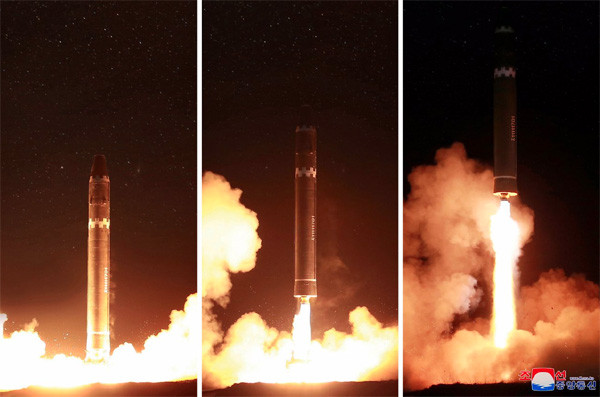North Korea hints at another, more frightening missile test
North Korea recently successfully tested a ballistic missile with a range believed to reach anywhere in the United States. But the country has hinted at a "much more terrifying" weapons test.
In state media, North Korean authorities regularly announce continued weapons testing and the completion of a missile program that could strike the United States with nuclear weapons.
 |
| North Korea hints at another, more terrifying test |
But after US President Donald Trump threatened to “totally destroy” North Korea in a speech to the United Nations this summer, Pyongyang set a different target, with North Korean Foreign Minister Ri Yong Ho warning that leader Kim Jong Un would respond with “an unprecedented detonation of an H-bomb in the Pacific Ocean.”
H-bomb, or hydrogen bomb or thermonuclear bomb, has much more destructive power than nuclear bomb due to its special operating mechanism.
In November, CNN quoted a senior North Korean official as saying the US should take the threat “literally,” implying it could come after the completion of the development of an intercontinental ballistic missile (ICBM) – something North Korea claimed after its November 29 test.
The latest ICBM test has drawn condemnation from world leaders, with US Ambassador to the United Nations Nikki Haley saying it would bring the US and North Korea "closer to war".
The missile reached an altitude of 4,500km and fell into the Sea of Japan. If North Korea carries out its threat to detonate a nuclear device over the Pacific Ocean, millions of people will be affected.
"If North Korea actually conducts a space test, it will be a game changer. The amount of pollution in the air and ocean will last for years," said Jenny Town, editor of 38 North, a website specializing in analyzing the situation in North Korea, Business Insider reported.
Given the volume of sea traffic and the number of people who depend on the oceans for their livelihoods, a test could kill people both directly and indirectly. Airborne nuclear weapons also pose an electromagnetic pulse risk, which could cripple electrical grids and infrastructure.
According to Vietnamnet.vn
| RELATED NEWS |
|---|


